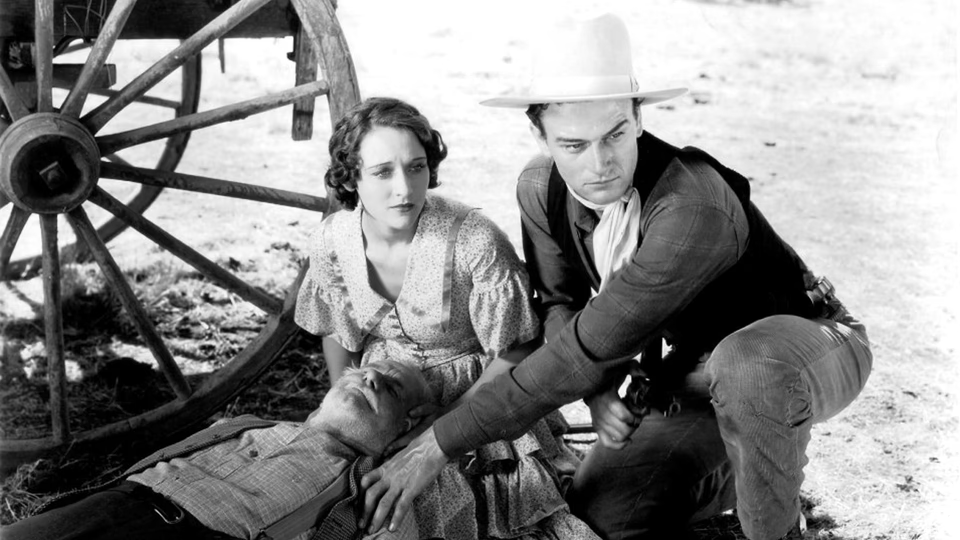The Big Stampede

John Wayne plays John Steele, a deputy lawman sent to clean up the New Mexico territory. He arrives in town and poses as a drunken drifter while sizing up local cattle baron Sam Crew. Then John is on the frontier, befriending a wagon train leader named Cal and making eyes at Cal’s niece Ginger. Crew’s gang attacks the wagon train, prompting John to recruit Sonora Joe, a Mexican bandit who first tries to rustle the wagon train’s cattle.
If this sounds disjointed, then I have conveyed a sense of watching this film.
A few years prior, Warner Brothers acquired First National Pictures and inherited the rights to several popular silent westerns starring Ken Maynard. These were A-list productions showcasing Maynard’s impressive stunt work.
Someone—either former First National Executive Sidney Rogell or producer Leon Schlesinger—got the idea to remake the Maynard silents with sound, recycling as much action footage as possible, and sold Jack Warner on the proposal. They just needed an actor who matched Maynard’s build. Enter Wayne, who signed a six-picture contract in 1932. In John Wayne: American, Randy Roberts and James Stuart Olson say the contract was with Schlesinger and Rogell and paid $825 a picture. In John Wayne, Michael Munn says the contract was with Warner Brothers, paying Wayne $1,500 a picture. In John Wayne: The Life and Legend, Scott Eyman says the contract was with Schlesinger—who “had an in at Warner”—and paid Wayne $850 a picture. The truth may be lost to history, but the $800 contract with Schlesinger seems more plausible than a $1500 contract with the studio given Wayne’s status at the time.
The Big Stampede remakes and recycles footage from Ken Maynard’s 1927 silent, The Land Beyond the Law. The titular stampede, which provides the film’s climax, proves the lone memorable moment. The wide shots of rampaging cattle and runaway wagons impress. The spliced-in close-ups of Wayne shouting “Hoo-ah!” do not. Wayne’s still raw. His scenes with Mae Madison, who plays Ginger, are stiff and awkward.
These movies, and the Monogram productions that followed, afforded Wayne the years of experience he’d bring to bear in his breakout performance in John Ford’s Stagecoach. But for now, he’s still learning, making this of interest only to completists curious to see John Wayne before he was John Wayne.